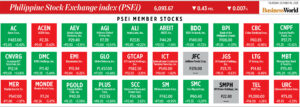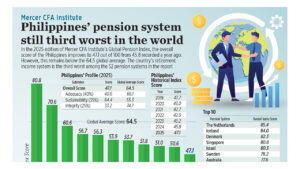An expert said female business owners continue to face a knowledge gap and limited access to funding despite the growing presence of women-led enterprises in the country.
“When it comes to funding startups, and especially growth-stage businesses, women are getting a much smaller piece of the pie, even if a large majority of MSMEs are actually women-led,” FoundHer Co-founder and Chief Executive Officer Niña L. Terol told BusinessWorld at the sidelines of an event.
Ms. Terol noted that only 2% to 3% of women globally can get funded through venture capital. Meanwhile, about 20% of women in the Philippines get venture capital funding.
“There is a disparity between the number of businesses that are being started and owned by women and the number of businesses that are actually getting external funding and external capital to grow those businesses,” she said.
According to the Organization for Economic Cooperation and Development (OECD), more than 55% of micro, small, and medium-sized enterprises (MSMEs) in the country are women-led, which is “exceptional” by global standards.
Citing the Asian Development Bank (ADB) survey, OECD said that 58% of micro-enterprises, 50.3% of small enterprises, and 16% of medium-sized enterprises are women-owned in the country.
With the rapidly increasing number of female business owners, Ms. Terol said many lack sufficient understanding of financial opportunities that can aid in their business growth.
“Going to investors or going to banks and financial institutions is not often the first thing that they do. So when women entrepreneurs need capital, the first thing they do is go to family and friends,” she said.
Data from the Bangko Sentral ng Pilipinas (BSP) revealed that the total loans of MSMEs reached P540.92 billion as of June, 11% up from a year earlier.
However, the total loans accounted for only 4.59% of the Philippine banking industry’s P11.78-trillion lending portfolio, falling short of the prescribed ratio of 10%.
Strict bank requirements and their hesitancy to extend credit to MSMEs also lead other women to high-interest-bearing instruments, such as personal loans and credit cards, said Ms. Terol. “And those options might not always be the best, or the safest, or the most efficient use of money.”
“We just need to make sure that we bridge the knowledge gap, so that women know where to go and what options they have, and they don’t feel helpless in the face of a lack of capital,” she added. — Almira Louise S. Martinez
Photo caption: FoundHer Co-founder and Chief Executive Officer Niña L. Terol at the FoundHer Summit. — Almira Martinez


















